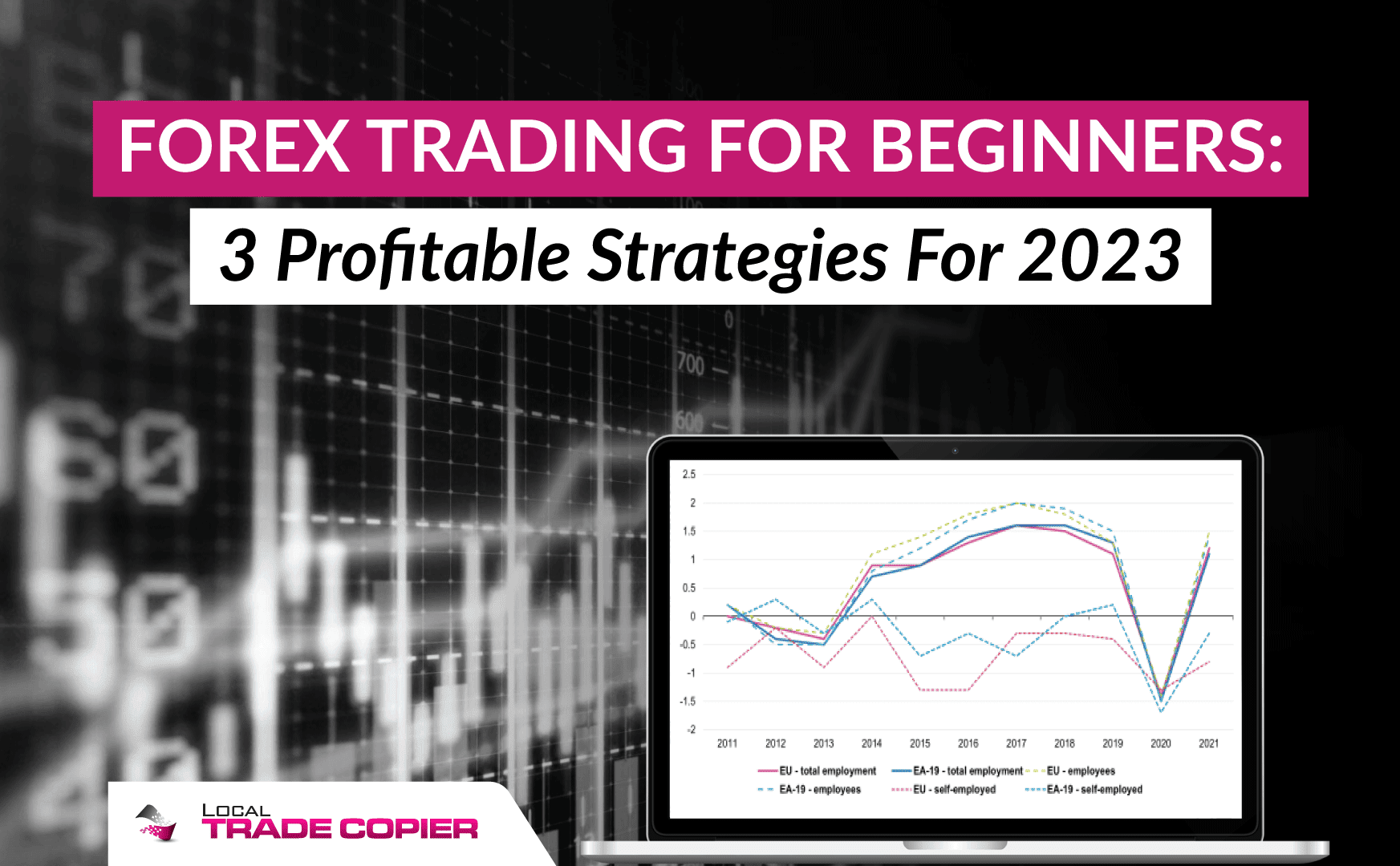
Forex trading for beginners might seem like navigating uncharted waters. The allure of potential profits is tantalizing, but without the right guidance, it’s easy to get lost in the intricacies of the forex market. Fear not, as this comprehensive guide is designed to be your compass, leading you through the fundamental strategies that can turn your curiosity into success. Whether you’re completely new to trading or have some experience under your belt, these strategies will provide you with a solid foundation to thrive in the dynamic world of forex trading in 2023 and beyond.
Understanding Forex Trading Basics
Before diving into the strategies, let’s lay the groundwork. Forex, or foreign exchange, involves the trading of currency pairs. The goal is to predict the movement of one currency against another and capitalize on these price fluctuations. It’s like trading a piece of one country’s economy for another’s.
Strategy 1: Trend Following
What is the Trend Following?
Trend following is like riding a wave. It involves identifying and trading in the direction of an established market trend. Think about it: when a trend is strong, it’s like the wind at your back, propelling you forward.
How to Identify Trends
To spot trends, traders use tools like moving averages. These lines smooth out price data over time, revealing the overall trend direction. An uptrend is a series of higher highs and higher lows, while a downtrend features lower highs and lower lows.
Using Indicators to Confirm Trends
Indicators such as the Relative Strength Index (RSI) or Moving Average Convergence Divergence (MACD) can help confirm the strength of a trend. RSI measures overbought and oversold conditions, while MACD detects potential trend reversals.
Strategy 2: Support and Resistance
The Concept of Support and Resistance
Imagine price levels as floors and ceilings. Support is like a floor that prevents prices from falling further, while resistance acts as a ceiling that prevents prices from rising higher.
Identifying Key Support and Resistance Levels
Traders pinpoint these levels by studying historical price movements. Those horizontal lines on the chart where price often bounces back? Those are key support and resistance levels.
Trading Opportunities Using Support and Resistance
Support can be a buying opportunity, with a stop-loss set just below it. Conversely, resistance can be a selling opportunity, with a stop-loss set just above it.
Strategy 3: Breakout Trading
What are Breakouts?
Breakouts are like a spring being released. They occur when prices burst beyond a well-established support or resistance level. Breakouts can lead to significant price moves and, consequently, profit.
Identifying Breakout Opportunities
Keep an eye on consolidation patterns near support or resistance levels. When prices burst out of these patterns, it often signifies a powerful move in one direction.
Managing Risk in Breakout Trading
Remember, not all breakouts lead to sustained trends. That’s why risk management is vital. Set stop-loss orders just below the breakout point to protect your investment if the trade goes sour.
Risk Management: Protecting Your Capital
Successful trading isn’t just about making gains; it’s also about minimizing losses.
Setting Stop-Loss and Take-Profit Levels
A stop-loss order is like a safety net. It automatically closes a trade if prices move against you. On the other hand, a take-profit order locks in profits by closing a trade once a specific target is reached.
Calculating Position Size
Position sizing determines how much you risk on a trade. It’s smart to allocate a small portion of your capital to each trade to spread risk effectively.
Diversifying Your Trades
Don’t put all your eggs in one basket—or trades in one currency pair. Diversification involves trading different pairs to manage risk and potentially increase opportunities.
Choosing a Reliable Broker
Finding the right broker is akin to selecting a trustworthy partner for your trading journey.
Regulation and Security
Opt for a broker regulated by respected financial authorities. This ensures your funds’ safety and ethical trading practices.
Trading Platform and Tools
A user-friendly trading platform equipped with advanced tools can make your trading experience smoother and more productive.
Account Types and Fees
Consider account options and associated fees. Different accounts may have different spreads, commissions, and deposit requirements.
Practice Makes Progress: Demo Trading
Before diving into real trading, it’s wise to practice with a demo account.
Why Use a Demo Account?
Demo accounts offer a risk-free environment to practice strategies and acquaint yourself with the trading platform.
Developing Your Trading Plan
Success in forex requires planning and discipline.
Defining Goals and Objectives
Set clear goals for your trading journey. Are you looking for consistent income, long-term growth, or something in between?
Setting Realistic Expectations
Forex isn’t a magic money-making machine. Keeping your expectations realistic will help you stay grounded and focused.
Continuous Learning and Adaptation
The forex market is a dynamic beast. Keep learning about new strategies and market developments to refine your trading approach.
Conclusion
Starting your forex trading journey as a beginner might seem intimidating, but these three strategies provide a solid foundation. Remember, forex success doesn’t happen overnight. Dedication, patience, and a willingness to learn are your allies on this journey.
FAQs
1. Is forex trading suitable for beginners?
Ans: Yes, forex trading can be suitable for beginners with proper education and a well-defined trading plan.
2. How much capital do I need to start forex trading?
Ans: The amount of capital you need to start forex trading varies, but many brokers offer accounts with low minimum deposit requirements.
3. Are the strategies mentioned suitable for all market conditions?
Ans: While the strategies discussed are effective, they might need adjustments in certain market conditions. Adapting to changing market dynamics is crucial.
4. Can I trade forex part-time?
Ans: Yes, many traders engage in forex trading part-time. The market’s accessibility 24/5 allows flexibility in trading hours.
5. How can I control emotions while trading?
Ans: Emotions can impact trading decisions. Following a well-defined trading plan and practicing discipline can help manage emotions.